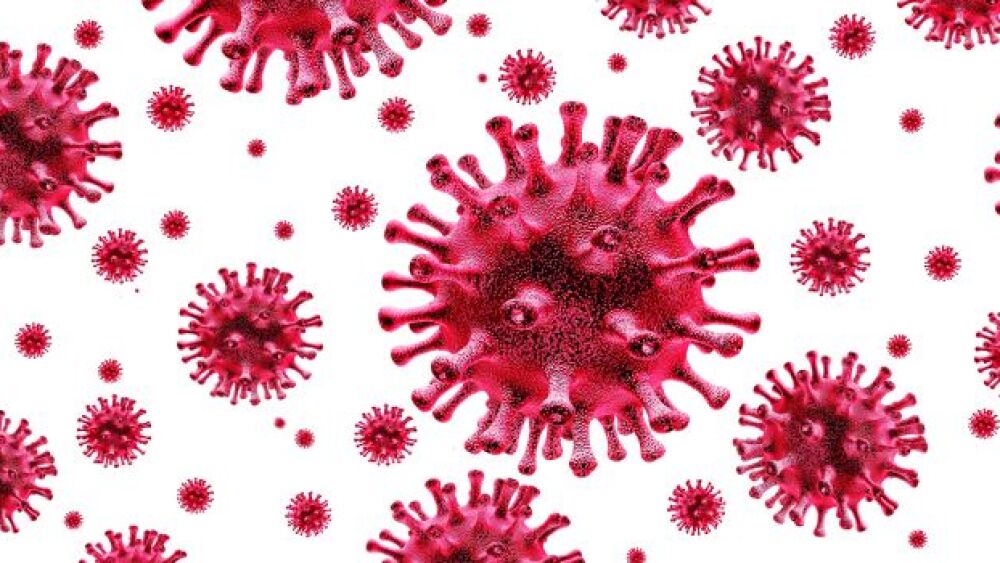Despite the biggest vaccination drive in the U.S., the pandemic is still not over. The U.S. has reported more than 800,000 COVID-19 deaths, an increase of 500,000 since the vaccination started.
While new drugs are being tested and authorized to treat COVID-19, the SARS-CoV-2 virus that causes the disease is proving to be resilient and agile at mutating to survive, helped along by the unvaccinated around the world. Here’s a look at the first anniversary of the first authorized COVID-19 vaccine in the U.S. and other stories.
First Anniversary of First COVID-19 Vaccine in the U.S.: 500,000 More Dead
A year ago, the U.S. began distributing the first COVID-19 vaccine authorized, the mRNA product by Pfizer and BioNTech. The vaccine’s efficacy far exceeded expectations, and it was a hopeful sign that we would be turning the corner on the pandemic. Unfortunately, despite what has been described as the biggest vaccination drive in American history, the pandemic is still not done with us. The U.S. has reported more than 800,000 deaths from the disease, an increase of 500,000 since the vaccine was authorized.
Dr. Francis Collins, director of the National Institutes of Health (NIH), said scientists and public health officials underestimated how misinformation would hobble the “astounding achievement” of the vaccines. “Deaths continue … most of them unvaccinated, most of the unvaccinated because somebody somewhere fed them information that was categorically wrong and dangerous.”
Unvaccinated people have a 14 times higher risk of dying from COVID-19 compared to fully vaccinated people, according to the Centers for Disease Control and Prevention (CDC). The pandemic seemed to be under control by June 2021 until the highly contagious Delta variant emerged, primarily hitting the unvaccinated.
“You have to be almost perfect almost all the time to beat this virus,” said Andrew Noymer, a public health professor at the University of California, Irvine. “The vaccine alone is not causing the pandemic to crash back to Earth.”
Pfizer’s Antiviral Paxlovid Phase II/III Trial Confirms Effectiveness
Pfizer reported final data from its Phase II/III EPIC-HR trial of its oral antiviral drug Paxlovid (nirmatrelvir and ritonavir) in COVID-19. The data was consistent with earlier reported interim analysis in November. The drug significantly decreased the risk of hospitalization or death by 89% compared to placebo in non-hospitalized, high-risk adults with COVID-19 within three days of symptom onset. It also reduced the risk of hospitalization or death for any cause by 88% compared to placebo in people treated within five days of showing symptoms, which increased from 85% in the interim data.
The drug is currently part of a rolling submission to the U.S. Food and Drug Administration (FDA) for an emergency use authorization (EUA), and Pfizer indicated they have sent this data to the agency.
“This news provides further corroboration that our oral antiviral candidate, if authorized or approved, could have a meaningful impact on the lives of many, as the data further support the efficacy of Paxlovid in reducing hospitalization and death and show a substantial decrease in viral load,” said Albert Bourla, Ph.D., chairman and chief executive officer of Pfizer. “This underscores the treatment candidate’s potential to save the lives of patients around the world. Emerging variants of concern, like Omicron, have exacerbated the need for accessible treatment options for those who contract the virus, and we are confident that, if authorized or approved, this potential treatment could be a critical tool to help quell the pandemic.”
J&J Vaccine Study in South Africa: No Deaths from Omicron Variant
In a study of Johnson & Johnson’s COVID-19 vaccine conducted in South Africa, no deaths related to the Omicron variant were observed.
“Although we have had a lot of breakthrough infections, there has been very little hospital admission in comparison to the Delta period,” said Glenda Gray, South African Medical Research Council president. “And as of today, we have had no one who has died from Omicron from the J&J study, so that’s the good news, it shows again that the vaccine is effective against severe disease and death.”
Omicron Spreading Fast
Although to date, only one person has been reported to have died worldwide from an infection of the Omicron variant of COVID-19, in the U.K., the variant appears to be spreading extremely quickly around the world. Anecdotally, it seems to carry milder disease than Delta, but that is not yet completely clear. At least one major study of 78,000 Omicron cases in South Africa found hospital admissions in adults were 29% lower than the initial pandemic wave in March 2020. A World Health Organization (WHO) report said, “Given the current available data, it is likely that Omicron will outpace the Delta variant where community transmission occurs.”
If it is indeed milder, that’s a positive sign. However, the vaccines don’t appear to work as well against Omicron, although boosters do seem to bring immunity against the new variant up to acceptable levels. And vaccines do appear to offer protection against Omicron in terms of severe disease and death, although that has not been confirmed.
Studies of Omicron have suggested high reinfection rates and breakthrough infections in vaccinated people. The infections are typically mild and resolve within three days. Symptoms most commonly reported are scratchy throat, nasal congestion, dry cough, and body aches, especially lower back pain.
The University of Florida Investigates Possible Destruction of COVID-19 Research
A 274-page University of Florida faculty committee report made claims of pressure to destroy COVID-19 data and barriers created to prevent its publication. The university and its Office of Compliance and Ethics have launched a formal investigation. The original claims were that there was external pressure to destroy COVID-19 data, that a State of Florida government entity put up barriers and delayed publication of COVID-19 data, and that UF staff were verbally told not to criticize Governor Ron DeSantis or UF policies related to COVID-19. Faculty members in the report expressed “grave concern about retaliation” and “a sense that anyone who objected to the state of affairs might lose his or her job or be punished in some way.”
Children’s Inflammatory Disease Tied to COVID-19 Did Not Surge with Delta
When Delta began to surge in the summer of 2021, pediatricians expected a resultant surge in multisystem inflammatory syndrome in children (MIS-C), a complication of COVID-19 that shows up about a month after infection. It can cause dangerous inflammation around the heart and other organs, including stomach, lungs, brain, eyes, and kidneys. MIS-C is rare, with only 5,973 cases reported in the U.S., with 52 associated deaths. At least one infectious disease expert, Dr. Robert DeBiasi, chief of infectious diseases at Children’s National Hospital in Washington, D.C., thinks the lower incidence of MIS-C with Delta is tied to an increase in vaccination in children around the same time. The Pfizer-BioNTech shots were authorized for children as young as 12 in May 2021, just before Delta took off in the U.S.
Chinese Study Suggests COVID-19 Incubation Period Can Be Longer Than 14 Days
Generally, the incubation period for COVID-19 appears to be about two to 14 days. However, a study that modeled COVID-19 patients in China in 2020 estimates that 10% of infections had incubation periods longer than 14 days. These patients were at lower risk of severe disease and were less likely to transmit it to others. They found that most patients with longer incubation times were older than 60 years of age and were exposed to public spots or workplaces instead of at home.
Moderna to Manufacture Millions of its Vaccine in Australia
Moderna inked a deal to create one of its largest manufacturing plants outside the U.S. and Europe in Australia. The facility will be in Victoria state and is planned to manufacture up to 100 million mRNA vaccine doses annually once it starts operations in 2024.
“By advancing with this new partnership, we are building … our sovereign capability to manufacture these vaccines here in Australia,” stated Australian Prime Minister Scott Morrison.





